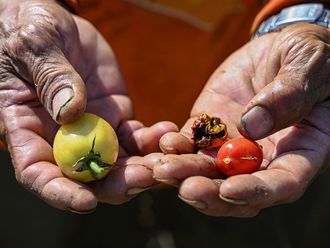Manila: The Philippine government has lifted its ban on sending workers to three countries in Africa in the wake of improving security situation there.
Labour Secretary Rosalinda Dimapilis-Baldoz said the Philippine Overseas Employment Administration (POEA) has issued three separate resolutions lifting the ban on the deployment of Filipino workers to Nigeria, Libya, and South Sudan.
Dimapilis-Baldoz earlier said imposing restrictions on sending Filipino workers was necessary to ensure the safety of Philippine nationals.
Resolutions
The first resolution, Resolution No. 4, Series of 2012, fully lifts the ban on sending workers to Nigeria as recommended by the Department of Foreign Affairs "in view of the improved security situation in that country." The Philippines banned sending workers to Nigeria on January 22, 2007 in the aftermath of repeated kidnappings of Philippine nationals working there. "On 13 March 2007, the ban was partially lifted to allow the re-deployment of OFWs (overseas Filipino workers) in Nigeria who were on vacation and were returning to the same employers. It was re-imposed on 31 January 2008, and this time, the ban also covered Filipino seafarers onboard ships entering Nigerian ports. A partial lifting of the re-imposed ban was made on 12 August 2009," Dimapilis-Baldoz said.
A second resolution, issued by the POEA also fully lifts the ban on the sending Filipino workers to Libya.
The lifting of the restriction by the POEA was based on the recommendation of the DFA. The DFA had ramped down the alert level for Filipinos in Libya from Alert Level 2 to Alert Level 1. In the four-step DFA warning system, crisis alert level 1 means there is close monitoring of the situation in the host country while alert level 2 advises Philippine nationals to avoid public gatherings and mass actions. In February last year, the POEA suspended the processing and deployment of OFWs bound for Libya due to the heightened unrest in that country.
Libya has been sourcing its manpower needs from the Philippines. At least 43,000 Filipinos were working in Libya before the anti-Gaddafi revolution erupted.
In the third POEA resolution, the POEA lifted the ban on the deployment of OFWs to South Sudan, which was imposed in March 2005 in all of Sudan, except Khartoum and the Kenana Sugar Plantation in the White Nile.
Last January 13, the POEA issued another resolution imposing a total ban to South Sudan and deferred the processing and deployment of OFWs to the North African country.
Dimapilis-Baldoz reasoned that the decision to lift the January 13 ban in the deployment of OFWs to South Sudan was based on the move by the DFA to lower the crisis alert level.












